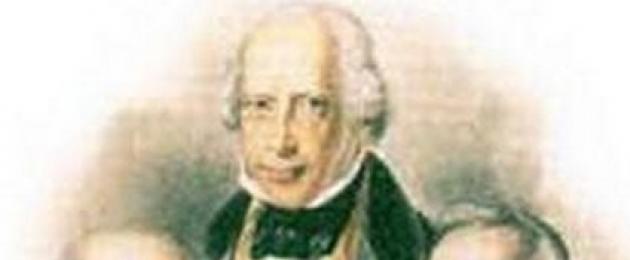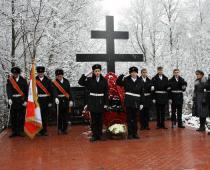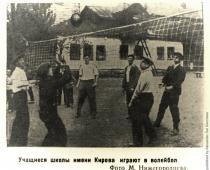Whoever owns the information owns the world. Many of us have heard this catchphrase. But, probably not everyone knows where it came from. Meanwhile, her story is very interesting.
Nathan Rothschild, the founder of the English branch of the Rothschilds, successfully traded in British textiles and after some time founded his own bank. Nathan Rothschild's most successful business began in 1814, when the British government engaged his bank to finance a military campaign against Napoleon. Large sums of gold (more than 11 million pounds a year) were transferred from England to Marshal Wellington and the allies through this bank. Nathan and his brother Jakob moved huge amounts of money in troubled Europe, relieving clients of the risks of transporting money and late payments.

Mayer Amschel Rothschild, founder of the dynasty, with his sons
In addition to financial worries, the Rothschild brothers had one hobby - they passionately loved pigeons. In the Middle Ages, a well-trained carrier pigeon cost no less than an Arabian horse. In the 19th century, they helped the Rothschilds make the largest fortune of the time.
In 1815, all of Europe was frightened by Napoleon's revenge. After the triumph of the Hundred Days, the stock exchanges of England were in a fever - everyone was anxiously waiting for how the decisive battle between the armies of Napoleon and Wellington at Waterloo would end. At the beginning of the battle, it seemed to observers that Napoleon was winning, which was urgently reported to London. However, the Prussian corps of Blucher arrived to help Wellington's troops and decided the outcome of the battle in favor of the allies. Napoleon fled.

All this time, Nathan Rothschild had at his disposal a staff of spies who followed on the heels of the troops and immediately sent reports to their master about all important events. Naturally, pigeon mail. The last pigeons with coded instructions tied to their legs were released immediately after the battle.
The next morning, Nathan Rothschild appeared on the London Stock Exchange. He was the only one in London who knew for sure about the defeat of Napoleon. Lamenting over Napoleon's successes, he immediately set about mass selling his shares. All the other stockbrokers immediately followed his example, as they decided that the battle was lost by the British. Panic set in. English, Austrian and Prussian securities were getting cheaper every minute. The London Stock Exchange was literally bursting with depreciated shares. They were secretly and hastily bought up by dummy agents of the Rothschilds.

The fact that Napoleon had lost the battle was only learned at the stock exchange a day later. Many securities holders committed suicide, and Nathan made £40 million in one day and took over a large share of the British economy. The same operation on the Paris Stock Exchange was carried out by Nathan Rothschild's brother Jacob.
This is how the famous phrase “Who owns the information, owns the world” was born. The Rothschilds were well versed in information flows. They prepared everything so that the information would reach them in the first place. Naturally, the Rothschilds made many enemies and envious people. Detractors were even able to intercept the business correspondence of the brothers. Imagine their surprise when the letters revealed mysterious, indecipherable signs and meaningless phrases like “dried fish” (meaning, by the way, the money of Prince Friedrich Wilhelm). The Rothschilds kept information as their most precious treasure.
The pompous funeral of Nathan Rothschild on August 8, 1836 in London showed what power and strength Rothschild had acquired in England. Behind the coffin were the ambassadors of the great powers, the mayor, members of the municipality, all of London was on its feet.
Nathan Rothschild, the founder of the huge Rothschild banking dynasty, once said this phrase, which immediately became winged. With his statement, the author wanted to touch upon the problem of the significance of information in business. He believed that the person who first owns the information has a huge advantage over other people. Whoever owns the information can use it for their own purposes to solve even the biggest problems.
I want to agree with this wonderful phrase, because I also believe that information, like a person’s thoughts, his ideas, are the main engine of progress and the key to one or another success.
After all, as is known from the course of social science, information is understood as this or that knowledge. This knowledge can be ordinary, scientific or artistic. From the economics block, we know that business requires the presence of mandatory elements, such as factors of production. Labor, as a factor of production, is undoubtedly important like all the others, but will a person perform this or that labor function if he does not have certain information about it? No, he can't. Entrepreneurial abilities, as a factor of production, are also tied to the thoughts, ideas and managerial decisions of the leader, but where will he get them without information? Nowhere. Among other things, in the age of information technology, in the post-industrial (information) society, information goes to a completely different level, to the level of an independent production factor.
In confirmation of the fact that information is an important resource, the author of this statement speaks. It is known from history that during the battle of Napoleon at Waterloo, Rothschild knew about his defeat, but decided to tell everyone the opposite and began to sell his shares, thereby provoking other shareholders to sell their shares. At the same time, Rothschild instructed to secretly buy all these shares. As a result, thanks to the possession of valuable information, he was able to collect in his hands all the valuable shares at a very low price.
Another example is the activities of the company for the distribution of legal reference systems "Garant". The company is engaged in the fact that it distributes a computer program that contains a huge bank of legislative acts, explanations to them, as well as an archive of judicial practice. The entire volume of documents in the database is more than 5 million copies. Thus, this company enjoys great success with various companies in the Russian market, since it was she who collected in one place important and up-to-date information necessary for any company for normal life.
Thus, the statement of Nathan Rothschild is relevant to this day, in the age of information technology and the development of information services.
As a preface:
The phrase in the title of the article became famous after one interesting story that happened at the beginning of the 19th century.
At that time, Nathan Rothschild, the future founder of the English branch of famous bankers and politicians, the Rothschilds, lived in England. At first he successfully traded in textiles, and when this business became unprofitable, he founded his own bank, N.M. Rothschild & Sons, with his brother Jacob.
The banking business turned out to be more profitable, especially in 1814, when the British government began to finance a military campaign against Napoleon through the Rothschild bank. Thanks to the bank, Marshal Wellington was transferred from England huge sums of money in gold (for a year they exceeded 11 million pounds), saving customers from the risks associated with transporting money. The brothers devoted their free time to an exciting hobby - breeding pigeons. And it was the pigeons that helped them make a fortune after the battle of Waterloo and the defeat of Napoleon.
June 1815. Europe is frightened by the revenge of Napoleon, the stock exchanges of England are in a fever. Everyone is anxiously awaiting how the last decisive battle between the French army and the troops of Marshal Wellington at Waterloo will end. The beginning of the battle was clearly for Napoleon, which London was urgently informed about. But observers could not foresee that the Prussian corps of General Blucher would come to the aid of Wellington's army, which would decide the outcome of this battle. The French troops were forced to flee. Napoleon was overthrown.
Nathan Rothschild, being an excellent strategist and analyst, had his own staff of observers who always followed the troops and sent him all the latest information about events using pigeon mail. After the battle of Waterloo was won, the pigeons with an encrypted message were immediately sent to the owner, who knew the result of the battle within a few hours.
The next day, early in the morning, Nathan Rothschild was on the London Stock Exchange and began to massively sell his shares. Looking at him and not knowing that this was a bluff, all the holders of securities unanimously followed his example, assuming that the battle was lost by the British. As a result, the London Stock Exchange was literally bursting with depreciated shares, which by the end of the day fell to almost zero. A similar operation, only on the Paris Stock Exchange, was carried out by another Rothschild - Jacob. Meanwhile, depreciated papers were hastily bought up by dummy agents of Rothschild.
A few hours later, when the result of the battle became known in London, the holders of the securities were plunged into shock. Some, having learned this news and having lost fortunes, committed suicide, and the Rothschilds in one day were able to earn more than 40 million pounds and became the owners of a larger share of the entire British economy. At this time, the phrase was sounded, which has become winged today - "who owns the information - he owns the world"!
http://www.vsepoisk.ru/2011/01/blog-post_13.html
The story is beautiful, though how much truth is in it, and how much fiction is hard to judge.
I've been following the market a lot less than usual for the last couple of weeks. Fatigue accumulated after a very active first quarter of 2012, I decided to take a short break. If I usually spent 4-5 hours a day reading company news, looking for interesting ideas, looking at charts, sometimes speculating during the day, now I don’t read almost anything, so, I scroll through Komon ... Because of this, I missed the idea with by granting Rosinter a franchise from McDonald's, I almost screwed up Kubanenergo - I bought only 85 each, although when the news about the deal began to spread, it was possible to take another 77 ... In general, without information, it is very difficult to make money with my trading style. I try to read as much as possible about everything interesting that happens on the market. I don’t read any third-rate information so as not to clog my brain ... But my head still sometimes buzzes in the evening)
Hunting on vacation) We are planning to go to Crete with my wife in June. Help the Greeks financially))) Who has a rest from the market? Or are there those who do not get tired of it?))
Z.Y. I love to travel, I have traveled almost all of Europe. The last time I was in Italy, I even dashed off a trip report. I gave it to friends and acquaintances to read - they seemed to like it) Let it be here too - suddenly it will come in handy for someone or it will just be interesting.
Today is the time of information. Google, social networks, mobile operators know almost everything about you - what interests you, who you communicate with, where you go. Millions of video cameras record your actions in almost all public places, the traffic police records your movement on the roads ...
- Be small so that you can always carry it with you (for example, by attaching it to a bunch of keys). No one knows exactly when the need to record something will arise - you must always be ready for this.
- Be sensitive - it is not always possible to bring the recorder close to the interlocutor.
- Have the ability to quickly turn on by touch. The critical situation will not wait.
- Have built-in means of ensuring the authenticity of the recording (confirmation that the recording has not changed, that it was recorded on a specific voice recorder), be tied to the time and date of recording.
Video "Who owns the information - he owns the world."
Francis Bacon, Nathan Rothschild, Winston Churchill....
Two hundred years ago, Napoleon lost the Battle of Waterloo to the British. According to legend, the battle was closely watched by Nathan and Jacob Rothschild. In addition to financial worries, the Rothschilds could afford only one hobby - carrier pigeons. After the battle, the pigeons were immediately released with coded instructions tied to their legs. But the Rothschilds did not want to take risks and, barely convinced that Napoleon was losing the battle, Nathan, driving expensive horses, rushes to London himself. In the morning, Nathan Rothschild appeared at the London Stock Exchange. He was the only one in London who knew about the defeat of Napoleon. Lamenting over Napoleon's successes, he immediately set about mass selling his shares. All the other stockbrokers immediately followed his example, as they decided that the battle was lost by the British. English, Austrian and Prussian securities became cheaper every minute and were bought up in bulk by agents of Rothschild. The fact that Napoleon had lost the battle was only learned at the stock exchange a day later. Many securities holders committed suicide and Nathan made £40 million. Real information, obtained before others, allowed the Rothschilds to play a win-win game on the stock exchange.
It was to Nathan Rothschild that the rumor attributed the now classic phrase "Who owns the information - he owns the world." Since then, the price and importance of owning information has increased exponentially.
Today is the time of information. Google, social networks, mobile operators know almost everything about you - what interests you, who you communicate with, where you go. Millions of video cameras record your actions in almost all public places, the traffic police records your movement on the roads....
At first glance, there is nothing wrong with such fixation. But in fact, the problem is that you are not in control of the information received. It is not up to you to decide how exactly to present and cut the recorded information. It is clear that a record of your, for example, violation will be presented, but the preceding one, for example, a provocation, will not. Your business partner with whom you have a disagreement will, of course, present only your promises to him, not his to you. The traffic police inspector will present a record of your violation, and not an attempt to provoke you into a bribe. And if necessary, he will find some beautiful excuse: remember the recent case when an evil virus destroyed a video of an accident involving a Moscow priest.
Today, life without a personal documentation device is essentially being unarmed among armed men. A documented alignment of situations will always be against you, since you will not have any documentary evidence. To maintain balance with the armed outside world, it is necessary to acquire personal documentation devices.
Motorists have already realized the existing situation and the most far-sighted of them have already installed video recorders on their cars that record the traffic situation. Now they will have documentary evidence in which case (accident, setup, etc.). The video recorder is good for a car, but not very suitable for a person, since a person is very mobile - the video picture will constantly jump. For a person, so far the best means of personal documentation is a voice recorder. Not all recorders are suitable for this. For example, a voice recorder in a mobile phone or smartphone is not suitable - it is very difficult and long to turn it on in a critical situation (it takes a lot of clicks to start recording while looking at the screen), it has low sensitivity (phones use microphones that are designed to perceive the speaker's speech at close range and suppress external, distant noises and speech (the so-called noise canceling microphones), so they can only record close-range speech.Dictaphone as a means of personal documentation must meet the following requirements:
1. Be small so that you can always carry it with you (for example, by attaching it to a bunch of keys). No one knows exactly when the need to record something will arise - you must always be ready for this.
2. Be sensitive - it is not always possible to bring the recorder close to the interlocutor.
3. Have the ability to quickly turn on by touch. The critical situation will not wait.
4. Have built-in means of ensuring the authenticity of the recording (confirmation that the recording has not been changed, that it was recorded on a specific voice recorder), be tied to the time and date of recording.
Picture
The possibility of cyclic recording is extremely interesting for a means of personal documentation, when the recorder performs the functions of a "black box" that records constantly. It is not always possible to turn on the recording at all, and it is not always possible to predict that "this situation should have been recorded." Opportunities to turn off the recording and realize later that the situation was worth documenting much more.
Means of personal documentation are, in fact, security tools. And saving on safety is more expensive for yourself. It is a pity that often the understanding of this truth comes late, when nothing can be done.
- In contact with 0
- Google+ 0
- OK 0
- Facebook 0








